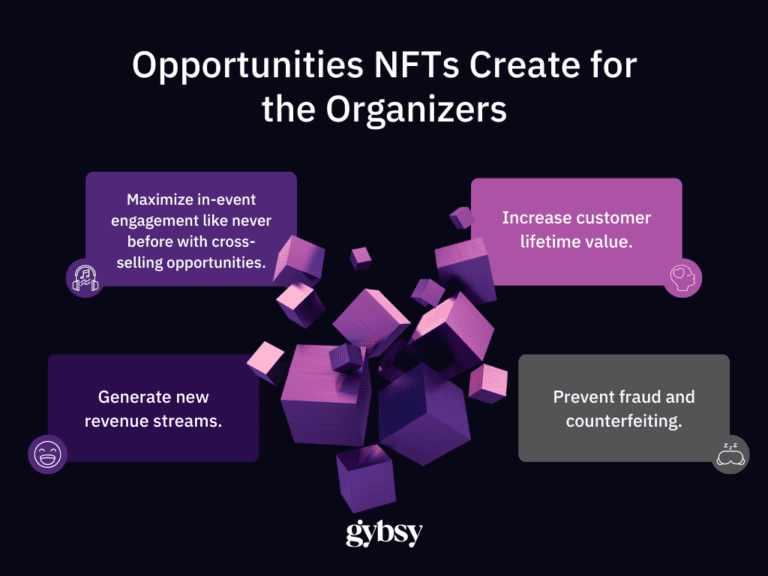What are the Challenges with Traditional ticketing System?
The 2022 global online ticket market is highly profitable at $70.0+ billion and is projected to reach $95.0 billion by 2026. However, there are numerous flaws within this industry and it needs to be reworked and restructured. The 2022 secondary ticket sales market is $5.2 billion and is projected to grow to $9.7 billion by 2027. However, performers and venues do not gain any of this revenue. This leaves their fans paying the additional price while scalpers enjoy the profits. Shows sell out within a matter of seconds, only for those tickets to appear on the secondary market at an absurdly upcharged price. It is more and more difficult for fans to buy tickets for popular events and gain these unforgettable experiences. There are many flaws within the unregulated ticketing industry. Currently, approximately 5 million fraudulent tickets are sold each year and nearly 12% of ticket buyers get scammed. The price of extra security only means fans will be paying higher fees on their tickets.

How can NFTs solve traditional ticketing challenges?
NFTs bring a viable solution to the problems of scalping and the resale market. Blockchain is a transparent ledger of transactions, which means the tickets are trackable. This technology allows NFT tickets to be verifiable since the authenticity of that ticket can be easily validated. In addition to this, fraud and counterfeiting can be easily eliminated. Venues and performers can now either profit off the secondary market through royalties or they can prohibit resale since NFTs can be made to be non-transferable.
NFTs come with all these additional perks and can offer so much more to buyers than traditional tickets. Regular tickets give you access to the event, but NFT tickets can give you access to exclusive merchandise, invites to live events, gated content and more. They allow for a closer relationship between fans and artists in addition to a stronger digital community. Not only this, but they have a permanent value. Like keeping old ticket stubs to memorialize an event, NFT tickets are a type of memorabilia that can hold value and virality.
What opportunities do NFTs create for the Organizers?
- Maximize in-event engagement like never before with cross-selling opportunities.
- Increase customer lifetime value.
- Generate new revenue streams.
- Prevent fraud and counterfeiting.

Conclusion
NFTs are the future of ticketing, allowing customers to enjoy enhanced live events while performers and venues regain control of the resale market. These NFTs go past the art and give holders the opportunity to strengthen their digital community and bolster engagement.
Gybsy is a Web3.0 platform that powers event ticketing and the guest experience by using blockchain technology to give venues and performers the ability to: generate new revenue streams with participation in any secondary ticket sales; increase customer engagement with pre-event, in-event and post-event promotions; and prevent fraud and counterfeiting using secure blockchain ticketing technology.
—
Gybsy “Powering Event Ticketing and the Guest Experience” www.gybsy.com

